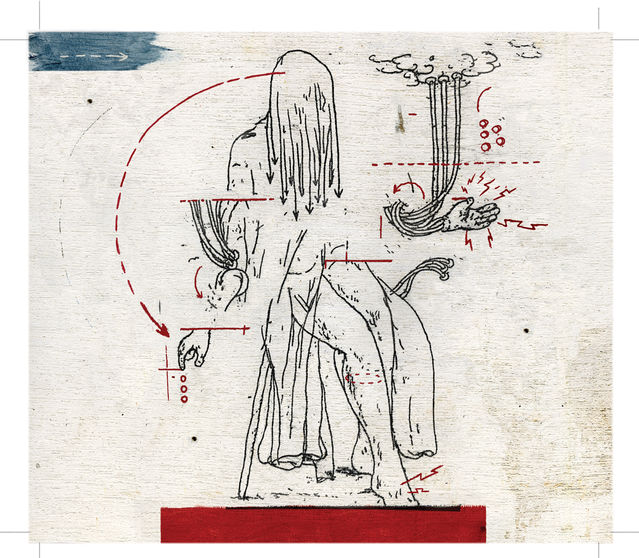When the Body Speaks | Psychology Today. January 3, 2017.
Psychosomatic illness is baffling to both patients and doctors. But it always happens for a reason: Sadness can be too impenetrable for words.
Text by Suzanne O'Sullivan M.D.

Psychosomatic disorders cause real distress and disability, but they are medical disorders like no others. They obey no rules. They can affect any part of the body. In one person they might cause pain. It is not unusual for somebody going through a period of stress to be troubled by palpitations. Psychosomatic illness can also manifest in ways that are more extreme but less common, such as paralysis or convulsions. Almost any symptom we can imagine can become real when we are in distress—tremor, fatigue, speech impairments, numbness. Anything.
On any average day perhaps as many as a third of people who go to see their general practitioner have symptoms that are deemed medically unexplained. Of course, a medically unexplained symptom is not necessarily psychosomatic. There will always be diseases that stretch the limits of scientific knowledge. But among those with undiagnosed physical symptoms is a large group in whom no disease is found because there is no disease to find. In those people the medically unexplained symptoms are present, wholly or partially, for psychological or behavioral reasons.
Psychosomatic disorders are physical symptoms that mask emotional distress. The very nature of the physical presentation of the symptoms hides the distress at its root, so it is natural that those affected seek a medical disease to explain their suffering. They turn to medical doctors, not to psychiatrists, to provide a diagnosis. The neurologist is more often faced with a diagnosis of psychosomatic illness than other specialists.


Physical manifestations of unhappiness are something we all experience; they are not personality flaws or signs of weakness, they are a part of life. Life is hard sometimes. It is harder for some than for others. We all manifest hardship in different ways.

In its close relationship with psychosomatic disorders, neurology has conferred on them its own name, "conversion disorders," as if the conversion of distress into paralysis or seizures instead of pain or fatigue is in some way special, when it is not (pain is by far the most common psychosomatic condition). Symptoms that arise through stress or anxiety are produced in the mind and are dependent on what the sufferer understands about the body and disease. Disabilities that arise in the subconscious rarely obey anatomical rules. It is just this rule breaking that makes conversion disorders so out of keeping with neurological disorders.
